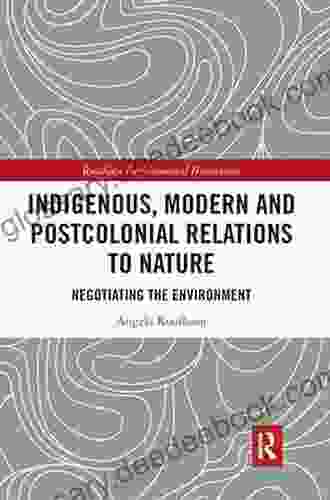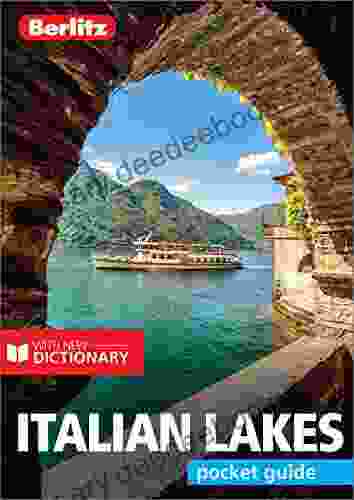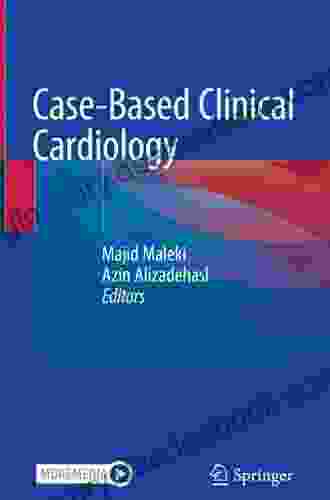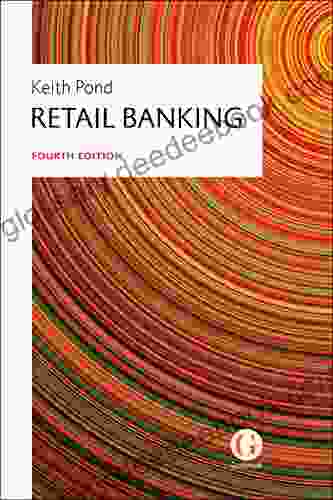Postcolonial Critique: Routledge Environmental Humanities

The Routledge Environmental Humanities series is a groundbreaking initiative that brings together scholars from a wide range of disciplines to explore the complex relationships between humans and the environment. One of the most important aspects of this series is its commitment to postcolonial critique.
4.6 out of 5
| Language | : | English |
| File size | : | 4453 KB |
| Text-to-Speech | : | Enabled |
| Screen Reader | : | Supported |
| Enhanced typesetting | : | Enabled |
| Print length | : | 358 pages |
| X-Ray for textbooks | : | Enabled |
Postcolonial critique is a theoretical approach that examines the ways in which colonialism and its legacies continue to shape the world today. Postcolonial critics argue that colonialism has had a profound impact on the environment, both in terms of the physical environment and in terms of the ways that people think about and interact with the environment.
The Routledge Environmental Humanities series includes a number of important works that engage with postcolonial critique. These works provide critical insights into the environmental challenges facing the world today, and they offer important new perspectives on the ways that we can address these challenges.
Critical Perspectives
Postcolonial critique offers a number of critical perspectives on the environment. These perspectives include:
- The environment is not a neutral space. Colonialism has had a profound impact on the environment, and the legacies of colonialism continue to shape the way that people think about and interact with the environment.
- Environmental problems are not simply technical problems. They are also social and political problems. The way that we address environmental problems must take into account the social and political factors that contribute to them.
- Indigenous knowledge and traditional ecological knowledge are valuable resources. Indigenous peoples have a wealth of knowledge about the environment that can help us to address environmental problems.
- Environmental justice is a critical issue. The environmental crisis disproportionately affects marginalized communities. We need to work to ensure that everyone has access to a healthy environment.
Key Texts
The Routledge Environmental Humanities series includes a number of key texts that engage with postcolonial critique. These texts include:
- Postcolonial Ecologies: Literatures of the Environment by Graham Huggan and Helen Tiffin
- The Routledge Companion to the Environmental Humanities edited by Ursula K. Heise, Jon Christensen, and Michelle Niemann
- Environmental Justice and the Politics of Inclusion by Dianne Rocheleau, David Pellow, and John Dryzek
- Indigenous Knowledge and the Environment: Critical Perspectives edited by Melissa K. Nelson and Daniel Shilling
Emerging Trends
The field of postcolonial critique is constantly evolving. New trends are emerging all the time. Some of the most important emerging trends include:
- The increasing focus on environmental justice. Postcolonial critics are increasingly focusing on the environmental justice implications of colonialism and its legacies.
- The growing recognition of the importance of indigenous knowledge. Postcolonial critics are increasingly recognizing the value of indigenous knowledge and traditional ecological knowledge in addressing environmental problems.
- The development of new methodologies for postcolonial critique. Postcolonial critics are developing new methodologies for engaging with environmental issues, such as ecofeminism, posthumanism, and decolonial studies.
The Routledge Environmental Humanities series is an important resource for scholars and practitioners engaged in postcolonial critique. The series provides a critical perspective on the environmental challenges facing the world today, and it offers important new perspectives on the ways that we can address these challenges.
As the field of postcolonial critique continues to evolve, the Routledge Environmental Humanities series will continue to be a valuable resource for scholars and practitioners alike.
4.6 out of 5
| Language | : | English |
| File size | : | 4453 KB |
| Text-to-Speech | : | Enabled |
| Screen Reader | : | Supported |
| Enhanced typesetting | : | Enabled |
| Print length | : | 358 pages |
| X-Ray for textbooks | : | Enabled |
Do you want to contribute by writing guest posts on this blog?
Please contact us and send us a resume of previous articles that you have written.
 Book
Book Page
Page Reader
Reader Library
Library Paperback
Paperback Magazine
Magazine Sentence
Sentence Bookmark
Bookmark Shelf
Shelf Glossary
Glossary Bibliography
Bibliography Foreword
Foreword Footnote
Footnote Scroll
Scroll Codex
Codex Classics
Classics Narrative
Narrative Biography
Biography Autobiography
Autobiography Memoir
Memoir Encyclopedia
Encyclopedia Thesaurus
Thesaurus Narrator
Narrator Character
Character Resolution
Resolution Librarian
Librarian Catalog
Catalog Stacks
Stacks Periodicals
Periodicals Study
Study Scholarly
Scholarly Lending
Lending Reserve
Reserve Journals
Journals Reading Room
Reading Room Special Collections
Special Collections Literacy
Literacy Storytelling
Storytelling Awards
Awards Book Club
Book Club Walter Brueggemann
Walter Brueggemann Jane Ralls
Jane Ralls Nicola Lathey
Nicola Lathey Robert D Lupton
Robert D Lupton Ronald Mcclure
Ronald Mcclure Barry Mazor
Barry Mazor Annette Lust
Annette Lust Yaasmyn Fula
Yaasmyn Fula Casey Christie
Casey Christie Scott Stevens
Scott Stevens Stacy Dekeyser
Stacy Dekeyser C J Petit
C J Petit Amy Rafferty
Amy Rafferty Archie Brown
Archie Brown Gail Radford
Gail Radford Phoebe Waller Bridge
Phoebe Waller Bridge James Clemens
James Clemens Tia Nomilam
Tia NomilamJohn Winstanley
 Mark Dickinson
Mark Dickinson
Light bulbAdvertise smarter! Our strategic ad space ensures maximum exposure. Reserve your spot today!
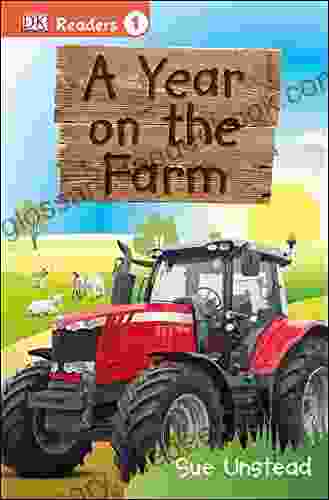
 Theodore MitchellYear on the Farm: Discover the Wonders of Rural Life with DK Readers Level 3
Theodore MitchellYear on the Farm: Discover the Wonders of Rural Life with DK Readers Level 3 John GrishamFollow ·15.2k
John GrishamFollow ·15.2k Ernest PowellFollow ·6.4k
Ernest PowellFollow ·6.4k Dawson ReedFollow ·17k
Dawson ReedFollow ·17k Dwight BlairFollow ·13.9k
Dwight BlairFollow ·13.9k Harvey BellFollow ·19.1k
Harvey BellFollow ·19.1k Kyle PowellFollow ·4.6k
Kyle PowellFollow ·4.6k Francisco CoxFollow ·19.1k
Francisco CoxFollow ·19.1k Dustin RichardsonFollow ·9.6k
Dustin RichardsonFollow ·9.6k

 Desmond Foster
Desmond FosterTravesti Life in the Favela: An Exploration of Identity,...
In the bustling...

 Bobby Howard
Bobby HowardCorruption and Development in South Korea and the...
Corruption is a major...

 George Martin
George MartinGaslighting, Blame Shifting, and Consent in Marriage: A...
Gaslighting,...
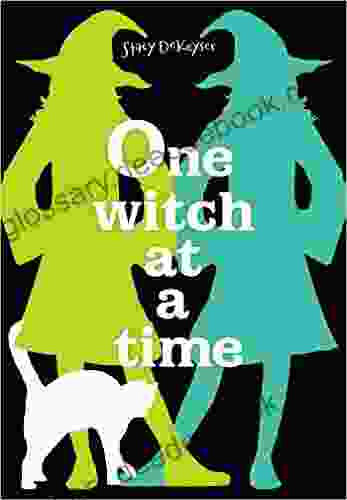
 Grayson Bell
Grayson BellOne Witch at a Time: Dive into the Enchanting World of...
Welcome to the Mystical Realm of...

 James Hayes
James HayesLatino Mass Mobilization: Immigration, Racialization, and...
Latino mass...
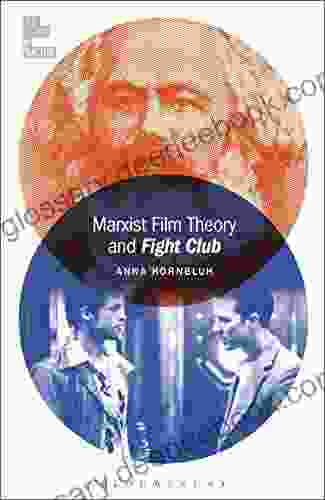
 August Hayes
August HayesMarxist Film Theory and Fight Club: A Long-Tail...
Marxist film theory,...
4.6 out of 5
| Language | : | English |
| File size | : | 4453 KB |
| Text-to-Speech | : | Enabled |
| Screen Reader | : | Supported |
| Enhanced typesetting | : | Enabled |
| Print length | : | 358 pages |
| X-Ray for textbooks | : | Enabled |


